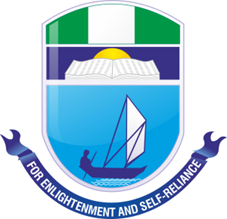
Department of Petroleum and Gas Engineering
The Federal Government of Nigeria founded the University of Port Harcourt in 1975 as a college of the University of Lagos. The college gained University status in 1977. The academic units of the University are organized into faculties and Departments. One of such academic units is the Faculty of Engineering. The faculty started in 1979 with two programmes, Electrical and Petroleum Engineering. Other programmes which were added later include Chemical Engineering in 1982, Civil Engineering in 1983, Mechanical Engineering in 1988, Gas Engineering and Environmental Engineering in 2000. In 1999 the Electrical Engineering programme was upgraded to Electrical/Electronic Engineering programme, while the now upgraded Petroleum and Gas Engineering Department teaches and conducts research in Petroleum and Gas Engineering.
Petroleum Engineering is the practical application of the basic sciences of physics, chemistry, mathematics and geology, and all the Engineering sciences to the development, recovery and processing of petroleum. Engineering problems must be solved with due consideration to economic factors, and the petroleum engineer must be thoroughly familiar with the basic economic relationships which involve investment, operating expenses, taxation and profitability analysis.
Petroleum Engineering Department admitted its first batch of undergraduate students in the 1979/80 session. Over the years, students’ population has grown steadily; many of them have graduated with very impressive degree classes, including the 1st class honours category. Many of these graduates are working with some of the key industries around Port Harcourt and beyond.
The Department, having consolidated the undergraduate programme, now offers Post Graduate Diploma in Petroleum Engineering, Master of Engineering and PhD Degree Programmes.
Admission Requirements
Candidates applying to the undergraduate programme in Petroleum/Gas Engineering should have five credit pass in Chemistry, Physics, Mathematics, English language and Biology (or Agricultural science) at WAEC and/or NECO at not more than two sittings.
Candidates are also expected to have a minimum score of 200 out of 400 in both the UME and Post UME before they can be admitted into the departments.
Petroleum &Gas Engineering Programme Structure
The programme structure in Petroleum/Gas Engineering requires five academic calendar years (of ten semesters) of which nine of the ten semesters are actually used for formal classroom/laboratory studies. One semester (in the fourth year) and the two long vacations (at the end of second and third year) are used for industrial training. At the fifth year of studies, students are assigned research project topics and design project topics which they are expected to defend at the end of the tenth semester under an external examiner not below the rank of a Professor.
Course Structure and Course Schedule
The Department runs a five-year undergraduate programme leading to the award of a Bachelors Degree in Petroleum and Gas Engineering (B. ENG.). Generally, the programme can be divided into two broad areas, Basic Engineering and Core Engineering courses.
- Basic-Engineering Courses: This covers courses taken in years one and two. These are general foundation courses for all engineering disciplines. This programme is dominated by common Science, General Studies and Engineering courses required by all engineering students.
- Core Engineering Courses: This covers courses taken from year three to year five. The courses taken at this level are professional engineering courses mainly from within the Faculty of Engineering.
Apart from these, the students undertake 3-month industrial training at the end of their year three and 6 months industrial training in the second semester of year 4. During the industrial training period, the students are supervised by both lecturers and industry-based supervisors.
Department of Geology
The Department of Geology was established in 1976 to expose the students to all aspects of training in theoretical, practical and field geology.
The Department of Geology formally commenced in 1977 as one of the three major departments in the then School of Physical Sciences, with the other departments being Physics and Mathematics. On October 1st 1983, the three Schools of Biological, Chemical and Physical Sciences were merged to form the Faculty of Science with eight departments; Animal and Environmental Biology, Biochemistry, Geology, Mathematics/Computers Science/Statistics, Microbiology, Pure and Industrial Chemistry, Physics, Plant Science and Biotechnology. This Faculty of Science was elevated to the status of the College of Natural and Applied Science in December 2012, with three faculties, namely Faculty of Biological Science, Faculty of Chemical Science and Faculty of Physical Science and Information Technology. Geology Department was one of the four Departments in the Faculty of Physical Science and Information Technology, which is made up of Department of Computer Science, Department of Geology, Department of Physics and Department of Mathematics/Statistics.
The National Universities Commission prescribes Benchmark Minimum Academic Standards (BMAS) for both undergraduate and postgraduate programmes in all Nigerian Universities and based on this, the Senate of the University approves the courses offered by each Department. The Department offers both undergraduate training programmes through teaching and research and renders professional support services to corporate bodies within and outside Nigeria.
Department of Petroleum and Gas Engineering l Department of Geology
 KEYFACT Energy
KEYFACT Energy
